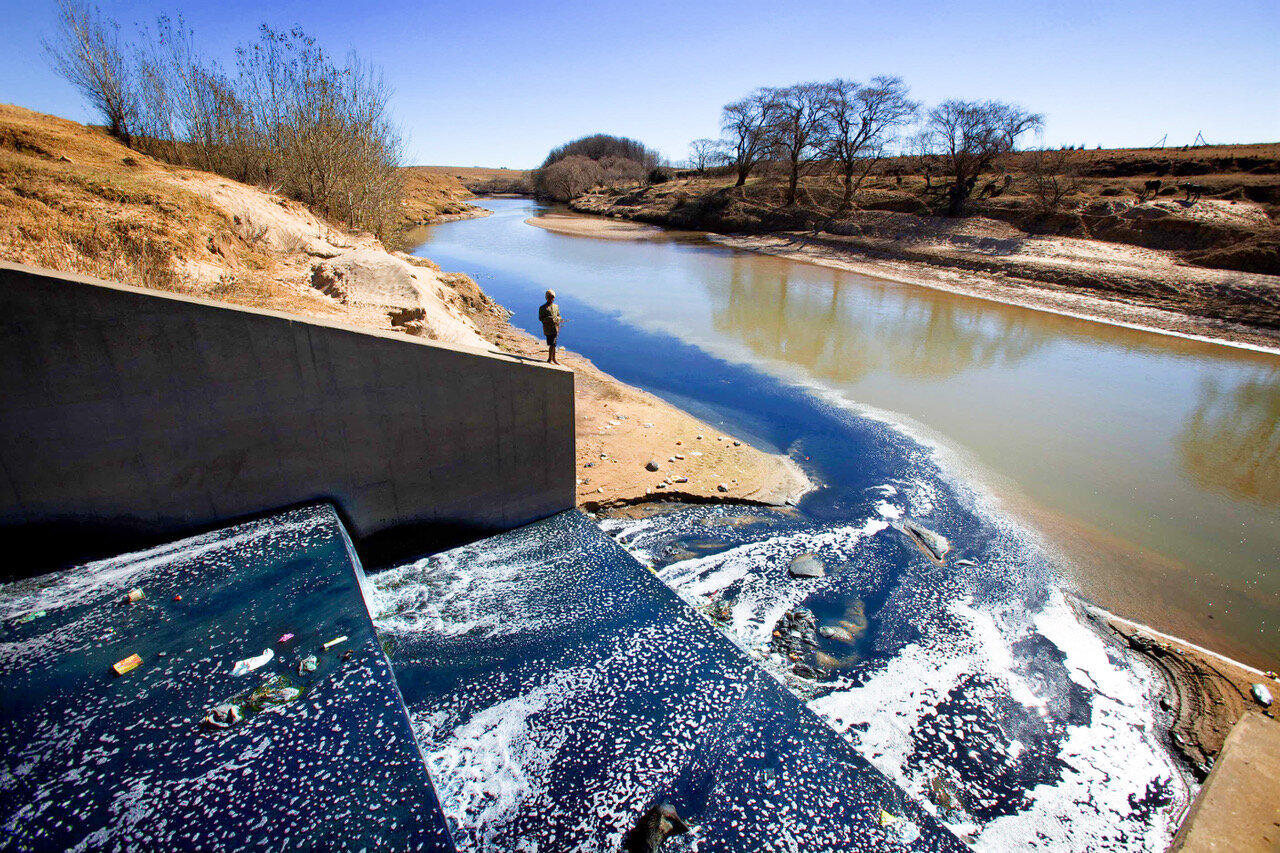Fast Fashion is Polluting Africa’s Rivers
Pre-pandemic, the revenue from Africa’s fashion exports was greater than the aid from any European donor. However, while the fashion industry generates jobs and encourages foreign investments into African countries, environmental degradation is the price to pay.
Water Witness International (WWI) released a report that holds international fashion brands accountable for the polluted rivers in Southern Africa. In Lesotho, fast fashion is dyeing the rivers a dangerous blue colour. According to WWI, some waters are now as alkaline as bleach at Tanzania’s Msimbazi river.
Researchers found that the blue dye from denim jeans is responsible for visibly polluting the Msimbazi river. Local communities have always relied on the Msimbazi river, near the textile factory, for washing and irrigating vegetables. The pollution threatens their health, in some cases causing burnt skin and disease, as well as the health of their livestock.
In raising this issue, WWI assure that, ‘we are not calling for an end to fashion sourcing in Africa’. Instead, they call for decent working conditions and sustainable resource use in African countries. One stakeholder even stated, ‘we need economic growth, but it must never come at the expense of our environment and the health of our children’.
The key consumer markets in Europe are the UK, France, Germany and Italy, as well as the USA and East Asia. We have a responsibility to hold international fashion brands accountable for the environmental damage their manufacturing has caused in African countries.
For more information about WWI’s report on How Fair is Fashion’s Water Footprint?, visit https://waterwitness.org/.

